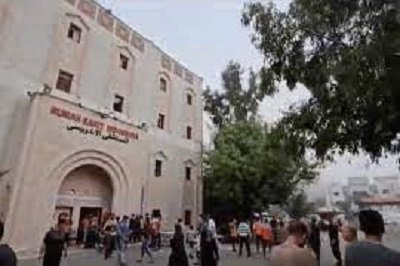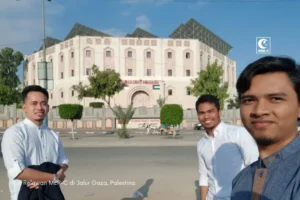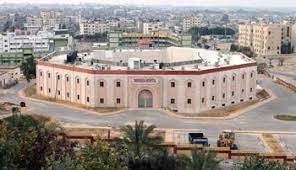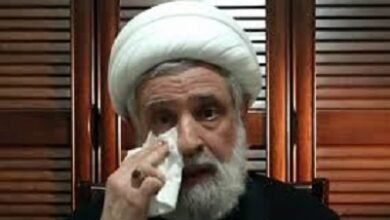Indonesian medical volunteer in Gaza, Fikri Rofiul Haq, says he will remain at the hospital and will not evacuate. !!!


Fikri Rofiul Haq, left, is one of three Indonesian volunteers at the Indonesia Hospital in Gaza. The hospital is seen in the background during peacetime in the Palestinian enclave [File photo courtesy of MER-C]
Before the war
Before the war, food supplies for the Indonesia Hospital were usually sourced from nearby areas, Haq said. At the start of Israel’s total blockade and attacks on Gaza, MER-C volunteers would go out to hunt for supplies in ambulances, provided by the hospital, which were considered safer than civilian vehicles.
Now the fighting has come so close to the hospital that it is too dangerous to venture outside.
Haq told Al Jazeera that he has been feeling particularly shaken lately, following an excursion about two weeks ago to source medical supplies for the hospital from civilian homes in the surrounding Al-Jalaa district, during which he thought he might die.
After War
One of the most fertile regions for Palestine’s renowned strawberries is Beit Lahia, with its good climate, rich soil and high-quality water supplies.
Located in north Gaza, Beit Lahia is also the home of the Indonesia Hospital where medical volunteer from Indonesia Fikri Rofiul Haq is based with the Indonesian humanitarian organisation the Medical Emergency Rescue Committee (MER-C).
“The Israeli forces have been bombing fields across the Gaza Strip and a lot of crops have died”, Haq told Al Jazeera.
“This year, there won’t be the usual produce like strawberries, even though it is the winter season,” he said.
Amid the horror of Israel’s war on Gaza, the destruction of Palestine’s strawberry harvest may seem insignificant.

But for Haq – one of three Indonesian MER-C volunteers based at the Indonesia Hospital – the memory of Gaza’s strawberries helps him cope. Each day is now a matter of survival in the territory, where Israel is now concentrating its attacks on hospitals.
“At the beginning of the war, we were still able to get some goods from the area around the hospital, like vegetables and instant noodles, but now it is impossible to get fresh produce like onions, tomatoes and cucumbers,” he said, speaking to Al Jazeera through WhatsApp voice messages.
“At the Indonesia Hospital now, staff only get a meal once a day at lunchtime, which is provided by [the neighbouring] Al-Shifa Hospital. For breakfast and dinner, staff eat biscuits or dates,” he said.
Dr Mohammad Abu Salmiya, the director of Al-Shifa Hospital, warned on Saturday that hundreds of injured people as well as newborn babies needed to be urgently transported to an operational medical facility as his hospital was crumbling under the strain of a lack of fuel and medicine – as well as Israeli bombardments.
“It’s a tragedy. The dead bodies – we can’t put them in freezers as they’re not functioning so we decided to dig a pit in the vicinity of the hospital. It’s a very inhumane scene. The situation is totally out of control. Hundreds of bodies are decomposing,” Abu Salmiya told Al Jazeera.
Atef al-Kahlot, the director of the Indonesia Hospital, said his facility is operating only at between 30-40 percent of capacity and he made an appeal for the world to help.








